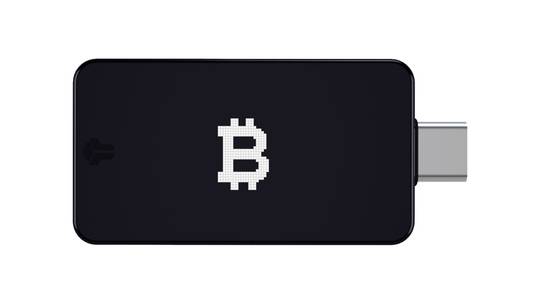Why Hardware Wallets Are Essential for Cryptocurrency Security

The Growing Threat to Cryptocurrency Holdings
As cryptocurrencies like Bitcoin and Ethereum continue to gain mainstream adoption, they've become increasingly attractive targets for hackers and cybercriminals. In 2023 alone, over $3.8 billion in cryptocurrency was stolen through various attacks, from sophisticated phishing schemes to malware designed to compromise software wallets.
The fundamental challenge with cryptocurrency security stems from the nature of blockchain technology itself: transactions are irreversible, pseudonymous, and require only access to private keys. If someone gains access to your private keys, they can transfer your funds to their own wallet with no possibility of reversal or recovery.
The Vulnerability of Software Wallets
Many cryptocurrency users store their assets in software wallets—applications installed on computers or smartphones. While convenient, these wallets have a critical security flaw: they exist on devices that are constantly connected to the internet and run various applications, making them vulnerable to:
- Malware and keyloggers that can steal private keys
- Phishing attacks that trick users into revealing sensitive information
- Remote access exploits that give attackers control of your device
- Zero-day vulnerabilities in the operating system or wallet software
Even with strong passwords and two-factor authentication, software wallets remain vulnerable because the private keys are stored or processed on an internet-connected device.
Hardware Wallets: The Gold Standard for Cryptocurrency Security
Hardware wallets like BitBox represent the most secure solution for storing cryptocurrencies. These specialized devices are designed with a single purpose: to securely store private keys and sign transactions in an isolated environment.
Here's why hardware wallets provide superior security:
1. Air-Gapped Security
Hardware wallets keep your private keys in a secure element that never connects directly to the internet. Even when the device is plugged into a computer to sign a transaction, the private keys never leave the secure environment of the hardware wallet.
2. Physical Verification
Hardware wallets require physical interaction (pressing buttons on the device) to confirm transactions. This means that even if your computer is compromised with malware, the attacker cannot authorize transactions without physical access to your hardware wallet.
3. Secure Elements
BitBox and other quality hardware wallets use secure element chips—the same technology used in high-security applications like credit cards and passports. These chips are designed to resist physical tampering and side-channel attacks.
4. Simplified Security Model
By using a dedicated device with minimal attack surface, hardware wallets dramatically reduce the number of potential vulnerabilities compared to general-purpose computers or smartphones.
BitBox: Swiss Precision in Cryptocurrency Security
The BitBox hardware wallet combines Swiss engineering precision with state-of-the-art security features:
- Military-grade encryption to protect your private keys
- Secure element chip that prevents physical extraction of keys
- Open-source firmware that can be audited for security
- Simple backup and recovery system using standard BIP39 recovery phrases
- User-friendly BitBoxApp for managing your cryptocurrencies
Even if your computer is compromised with malware, your cryptocurrencies remain safe because the private keys never leave the BitBox device.
When Should You Use a Hardware Wallet?
While software wallets may be convenient for small amounts of cryptocurrency, a hardware wallet becomes essential as your holdings grow. Consider using a BitBox hardware wallet if:
- Your cryptocurrency holdings represent a significant financial value
- You plan to hold cryptocurrencies as a long-term investment
- You want peace of mind knowing your digital assets are secure
- You've invested in Bitcoin, Ethereum, or other major cryptocurrencies
Remember that the cost of a hardware wallet is insignificant compared to the potential loss of your cryptocurrency holdings due to a security breach.
Conclusion: Don't Compromise on Security
As cryptocurrency adoption continues to grow, so do the sophistication and frequency of attacks targeting digital assets. Hardware wallets like BitBox represent the gold standard in cryptocurrency security, providing a level of protection that software wallets simply cannot match.
By investing in a BitBox hardware wallet, you're not just buying a device—you're investing in the security and longevity of your digital asset portfolio. In the world of cryptocurrency, where you are your own bank, taking responsibility for security is not optional—it's essential.